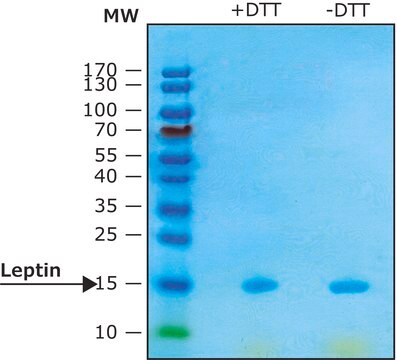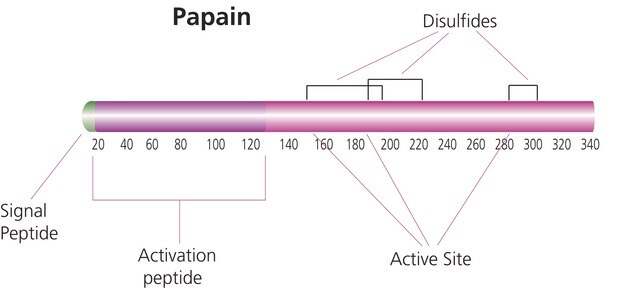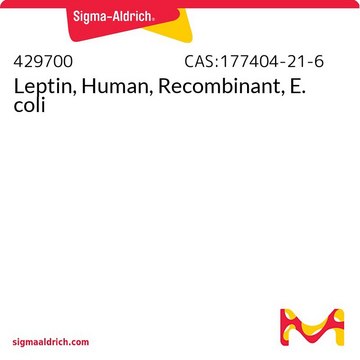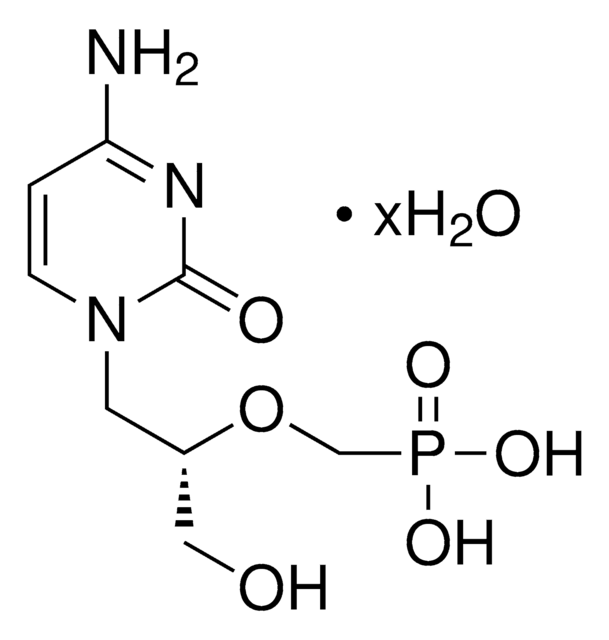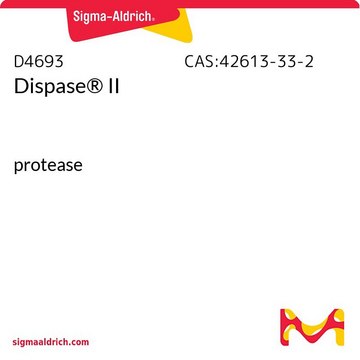SRP4901
Adiponectin human
recombinant, expressed in E. coli, ≥90% (SDS-PAGE)
Sinonimo/i:
ACDC, APM-1, Acrp30, AdipoQ, GBP-28
About This Item
Prodotti consigliati
Origine biologica
human
Ricombinante
expressed in E. coli
Saggio
≥90% (SDS-PAGE)
Forma fisica
lyophilized
PM
~30 kDa
Confezionamento
pkg of 25 μg
Condizioni di stoccaggio
avoid repeated freeze/thaw cycles
Impurezze
endotoxin, tested
N° accesso NCBI
N° accesso UniProt
Condizioni di spedizione
wet ice
Temperatura di conservazione
−20°C
Informazioni sul gene
human ... ADIPOQ(9370)
Descrizione generale
Applicazioni
Azioni biochim/fisiol
Stato fisico
Ricostituzione
Risultati analitici
Codice della classe di stoccaggio
11 - Combustible Solids
Classe di pericolosità dell'acqua (WGK)
WGK 3
Punto d’infiammabilità (°F)
Not applicable
Punto d’infiammabilità (°C)
Not applicable
Certificati d'analisi (COA)
Cerca il Certificati d'analisi (COA) digitando il numero di lotto/batch corrispondente. I numeri di lotto o di batch sono stampati sull'etichetta dei prodotti dopo la parola ‘Lotto’ o ‘Batch’.
Possiedi già questo prodotto?
I documenti relativi ai prodotti acquistati recentemente sono disponibili nell’Archivio dei documenti.
I clienti hanno visto anche
Articoli
Lipid Induced Insulin Resistance
Il team dei nostri ricercatori vanta grande esperienza in tutte le aree della ricerca quali Life Science, scienza dei materiali, sintesi chimica, cromatografia, discipline analitiche, ecc..
Contatta l'Assistenza Tecnica.